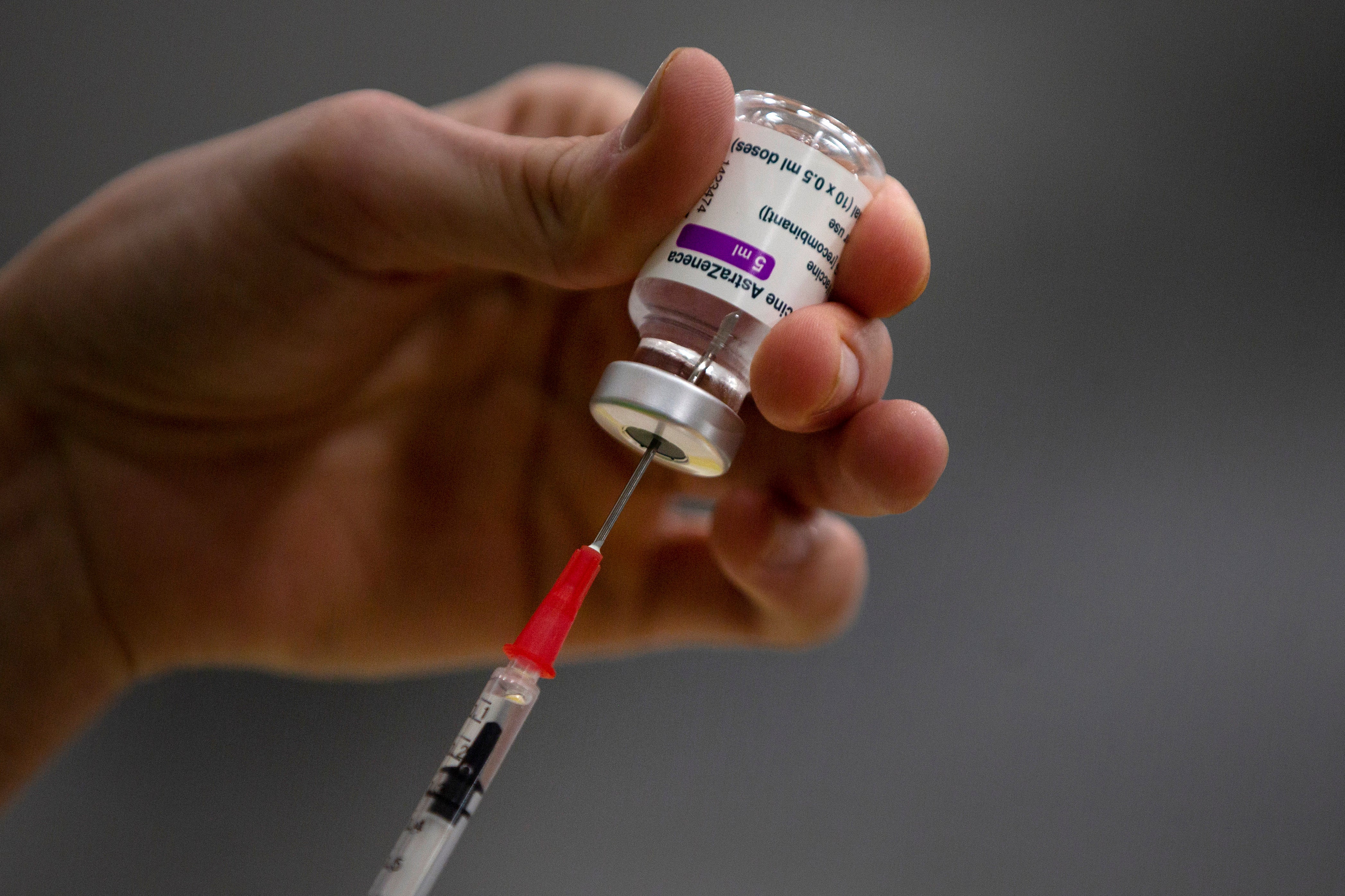Covid vaccine ‘to be made mandatory for NHS workers’ despite fears over healthcare staff shortages
There could be a mass exodus of NHS staff over compulsory vaccines, unions have warned

Your support helps us to tell the story
From reproductive rights to climate change to Big Tech, The Independent is on the ground when the story is developing. Whether it's investigating the financials of Elon Musk's pro-Trump PAC or producing our latest documentary, 'The A Word', which shines a light on the American women fighting for reproductive rights, we know how important it is to parse out the facts from the messaging.
At such a critical moment in US history, we need reporters on the ground. Your donation allows us to keep sending journalists to speak to both sides of the story.
The Independent is trusted by Americans across the entire political spectrum. And unlike many other quality news outlets, we choose not to lock Americans out of our reporting and analysis with paywalls. We believe quality journalism should be available to everyone, paid for by those who can afford it.
Your support makes all the difference.Health Secretary Sajid Javid is reportedly making the Covid vaccine a requirement for all NHS staff.
The government believes that making the vaccines a condition of employment would help limit the spread of the coronavirus in healthcare settings, as well as the numbers of Covid-related deaths.
But the plans are feared to cause a staff retention and recruitment crisis in healthcare, The Sunday Telegraph reported.
As many as 190,000 healthcare workers had not received one dose of a Covid vaccine by 11 April, NHS England data shows, and the figure does not include temporary staff.
It is feared that the NHS could see a mass exodus of staff as seen in the care sector, partly as a result of mandatory vaccines.
All care workers – including agency workers, volunteers, and healthcare visitors – have to be vaccinated by 11 November.
Almost 90,000 care home staff in England have still not been fully-vaccinated against Covid-19, and – out of this number – 41,000 have still received no vaccine at all, according to NHS figures published this week.
In a blow to the already-struggling sector, care home staff are leaving to better-paid jobs elsewhere – including Amazon’s warehouses and the NHS – where they have not been required to be vaccinated, according to a report by The Guardian this weekend.
There were already at least 120,000 social care vacancies before the Covid-19 pandemic and the government last month estimated that as many as 68,000 care workers, in the worst-case scenario, could be lost as a result of the vaccine rule.
Public and health sector union Unison called on the government this week to scrap the “no jab, no job” policy – warning ministers that they are “sleepwalking into disaster”.
It comes after the government announced in June that it would be launching a consultation on whether to extend this mandatory vaccination policy from care home staff to NHS workers.
Today (5 September), Vaccines minister Nadhim Zahawi told BBC1’s Andrew Marr Show that the consultation launched in the summer has not yet concluded.
He said that the NHS had a “duty of care” to ensure patients did not become infected, but said that an “incredibly high” proportion of frontline healthcare workers – more than 94 per cent – were already vaccinated.
The chief executive of the NHS Confederation, Matthew Taylor, said compulsory jabs for health staff are “not necessary”.
He told Sky News’ Trevor Phillips on Sunday: “The overwhelming majority of NHS staff are choosing to be vaccinated. And the important thing is to support people, to give people the opportunity to be vaccinated.
“So I think we would want to say that there is no necessity for compulsion, for surveillance of people, at this stage because the staff themselves are doing the right thing.”
Medics have also warned against extending the rule to the NHS, saying that staff should not face losing their jobs for declining a vaccine.
Chaand Nagpaul, chair of the British Medical Association council, had said in June that “compulsion is a blunt instrument to tackle a complex matter” and that implementing a blanket rule would “raise new ethical and legal implications”.
He added: “Recent research has highlighted that pressurising health and social care workers can have damaging effects, leading to an erosion of trust, worsening concerns about the vaccine, and hardened stances on declining vaccination.”
Mr Nagpaul said efforts should be focused on targeted engagement and any policy must avoid discrimination, given that vaccine uptake is lower in some ethnic minority groups.
NHS staff are recommended to be inoculated against flu, tetanus, diphtheria, polio, and MMR (measles, mumps, and rubella) – among others – but the vaccines are not compulsory.
Isra Black, a University of York lecturer specialising in healthcare law, told The British Medical Journal earlier this year that “any public authority, whether the state or individual NHS trusts, that mandates vaccination will need to comply with human rights and equality law.”
Mr Black added: “Mandatory vaccination interferes with the right to private life protected by article 8 of the European Convention on Human Rights, so the relevant authorities will need to show that the interference is justified in its pursuit of a legitimate aim and its proportionality.
“Public bodies must also show that they have taken into account the public sector equality duty and that mandatory vaccination policies comply with the requirements of the Equality Act 2010.”





Join our commenting forum
Join thought-provoking conversations, follow other Independent readers and see their replies
Comments